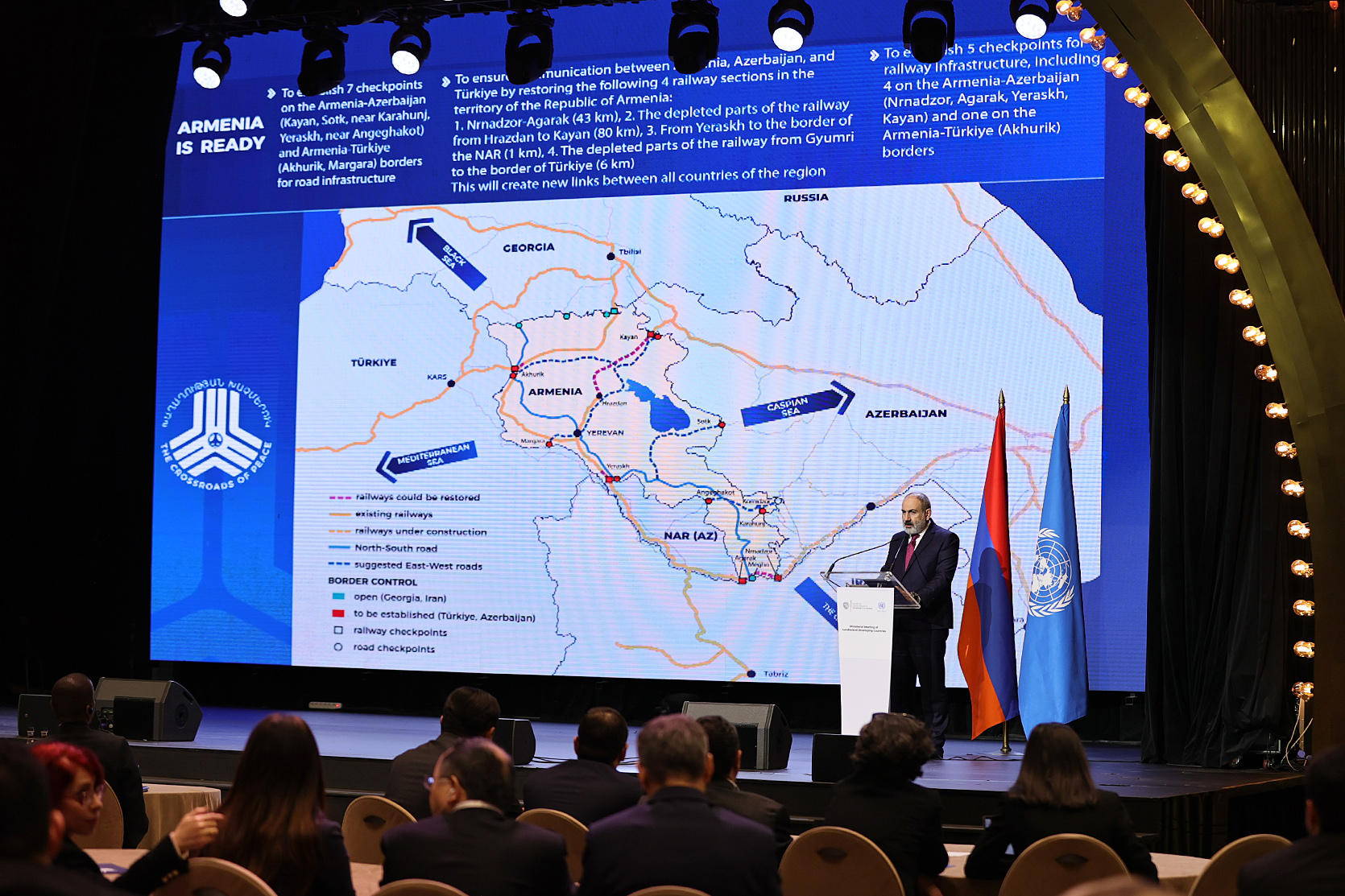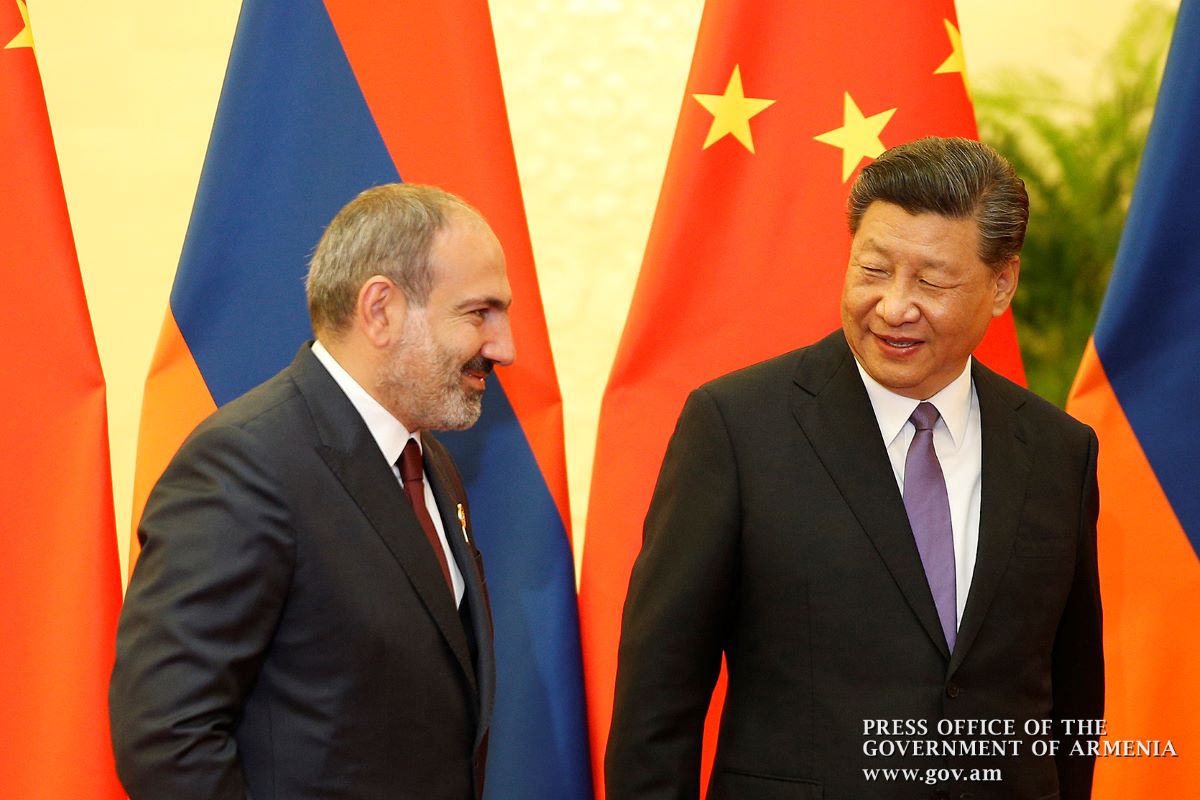First truck from Shanghai arrives in Yerevan: What the new route means for Armenia
Benefits of the Crossroad of Peace project
As part of the Armenian government’s “Crossroad of Peace” project, the first truck from China has arrived in Yerevan. The journey from Shanghai took 20 days, passing through Kazakhstan, Uzbekistan, Turkmenistan, and Iran.
“Crossroad of Peace” is an initiative by the Armenian government to unblock regional communications. According to prime minister Nikol Pashinyan, the project’s aim is to activate regional communications, including roads and railways between Armenia, Turkey, Azerbaijan, and Iran.
Although it is an independent project, “Crossroad of Peace” intersects with the TRACECA transport corridor initiative, which aims to connect Europe, the South Caucasus, and Asia. It also aligns with China’s “One Belt, One Road” initiative, a transcontinental investment program aimed at developing infrastructure and economic integration along the historical Silk Road.
“If the route operates at full capacity, Armenia’s economy will receive tens of millions of dollars annually just from trade with China. At the same time, the project’s launch will allow the utilization of Central Asian countries’ potential. For example, we have long discussed alternative sources of fuel imports. Companies from Kazakhstan have the opportunity and desire to enter our market. Solving the logistics problem will make this possible,” economist Armen Ktoyan told JAMnews.
Here’s what is known about the route and the first shipment, along with expert opinions.
- “Armenia does not create dividing lines in the region” – Pashinyan
- Astana offers itself for Yerevan-Baku talks. What’s the reason?
- Ilham Aliyev: “People and cargo from Azerbaijan to Azerbaijan should pass without inspection”
The Armenian Ministry of Territorial Administration and Infrastructure reports that the first truck from China arrived in Armenia on May 31. The cargo from Shanghai was initially transported to Khorgos, a Chinese city on the border with Kazakhstan.
“In Khorgos, the cargo was transferred to a Kazakh truck. The truck then traveled through Kazakhstan, Uzbekistan, Turkmenistan, and Iran before arriving in Yerevan. The cargo passed through all necessary customs and checkpoints in each of these countries. There were some issues, but they were resolved on the spot,” said Armen Saakyan, director of Gold Way, the company responsible for the shipment.
The Ministry of Territorial Administration and Infrastructure of Armenia welcomed the launch of the new route:
“The Armenian government supports practical steps and constructive efforts in this direction. It is very important for these efforts to continue.”
Commentary
After the coronavirus epidemic, there was a need to restore former communication channels, transportation logistics, or find alternatives, recalls economist Armen Ktoyan:
“From this perspective, the launch of the route could signal positive changes and economic benefits if it operates at full capacity.”
The expert emphasizes the significance of successfully launching the project, even on a small scale, despite being at the center of various conflicting interests.
He explained that regional conflicts and security issues in the Persian Gulf complicate freight transport and increase transit times.
Ktoyan also highlights that China is a crucial trade partner for Armenia, with annual trade turnover exceeding two billion dollars:
“Reducing delivery times can lead to significant cost savings. Even if we save just five percent in trade costs, this could result in tens of millions of dollars in annual benefits.”
Ktoyan believes that achieving this requires a clearer, functioning transportation chain and mechanisms to ensure their safety and stability. He does not rule out the emergence of “political obstacles driven by economic motives.”
While Ktoyan did not specify which countries might hinder the project’s implementation, he explained:
“Any neighboring country outside this chain [China, Kazakhstan, Uzbekistan, Turkmenistan, Iran, Armenia] might feel its interests are not being considered to some extent. Such a country could attempt to propose an alternative or, in cooperation with other countries, disrupt the projects.“




















